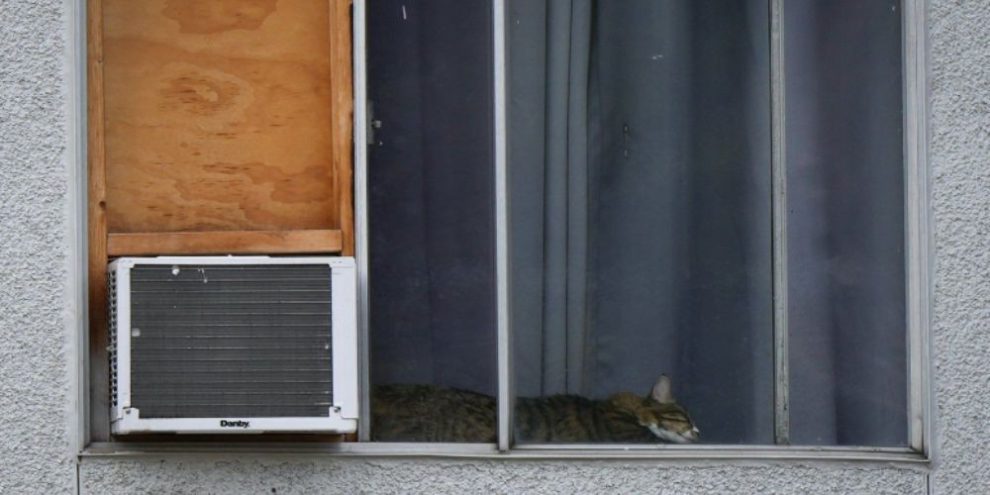
A Canadian tenant advocacy group says nearly half the renters they surveyed don't have air conditioning, as they press for protections from climate-fuelled extreme heat.
A report released by ACORN Canada says affordability was cited as the main barrier to access among the 44 per cent of surveyed tenants who don't have air conditioning.
The group says it collected more than 700 responses to the online survey, which was sent to its database of members and tenant contacts.
Barrie's News Delivered To Your Inbox
By submitting this form, you are consenting to receive marketing emails from: Central Ontario Broadcasting, 431 Huronia Rd, Barrie, Ontario, CA, https://www.cobroadcasting.com. You can revoke your consent to receive emails at any time by using the SafeUnsubscribe® link, found at the bottom of every email. Emails are serviced by Constant Contact
Climate change, driven by the burning of fossil fuels, has cranked up temperatures across Canada and increased the likelihood of dangerous heat waves.
The report says just over half of respondents, mostly low- and middle-income renters, identified excessive summer heat as a top maintenance issue for their unit.
ACORN Canada has been pushing cities to bring in bylaws that would require landlords to keep their units below a maximum temperature threshold, similar to how they have to keep it heated when it's cold.
"As governments and other actors intensify their efforts to combat climate change, it is critical that tenants have a seat at the table so that tenants’ needs and concerns are accounted for and housing strategies include tenant protections so as to not further worsen the housing situation," said the report, released Wednesday.
Toronto is among the cities exploring a maximum temperature bylaw. Council directed staff to report back with possible next steps later this year.
The number of days exceeding 30 degrees in Toronto could more than triple by mid-century, from about 20 days to 66 days, according to a staff report prepared for council.
Landlord groups have argued a maximum temperature bylaw would prompt building owners to pass on air conditioning costs to tenants through rent increases, which would create additional backlogs at provincial tribunals.
Tenant groups argue any maximum temperature bylaws should also be paired with government supports to ensure tenants are not saddled with additional costs.
Wednesday's report calls on the federal government to implement a national energy poverty program, modelled after the Ontario Energy Support Program. The monthly benefit program is intended to help low-income tenants cover utility costs and some advocates have suggested it could be topped up in the summer to help cover the costs of running an air conditioner.
The ACORN report says federal efforts to decarbonize Canada's homes and buildings have often overlooked tenants who tend to live in older and energy inefficient buildings.
About a third of surveyed tenants said they received a rent increase notice when their landlord carried out energy efficiency upgrades, the report said.
The report said retrofit incentives backed by the federal government should only be provided if landlords sign anti-evictions agreements and demonstrate how they would benefit the tenant.
The government has faced questions about whether public financing has been used by corporate landlords to justify rent hikes and extra utility costs.
In response, the previous federal government said any building upgrades financed by the Canadian Infrastructure Bank would, going forward, not be used as a rationale to increase rent. It also said the bank's future loan agreements for multi-unit residential building retrofits would include provisions that limit a borrower's ability to hike rents or impose additional utility costs on existing tenants.
The housing minister's office did not immediately respond to questions Wednesday about the report.
This report by The Canadian Press was first published May 28, 2025.





